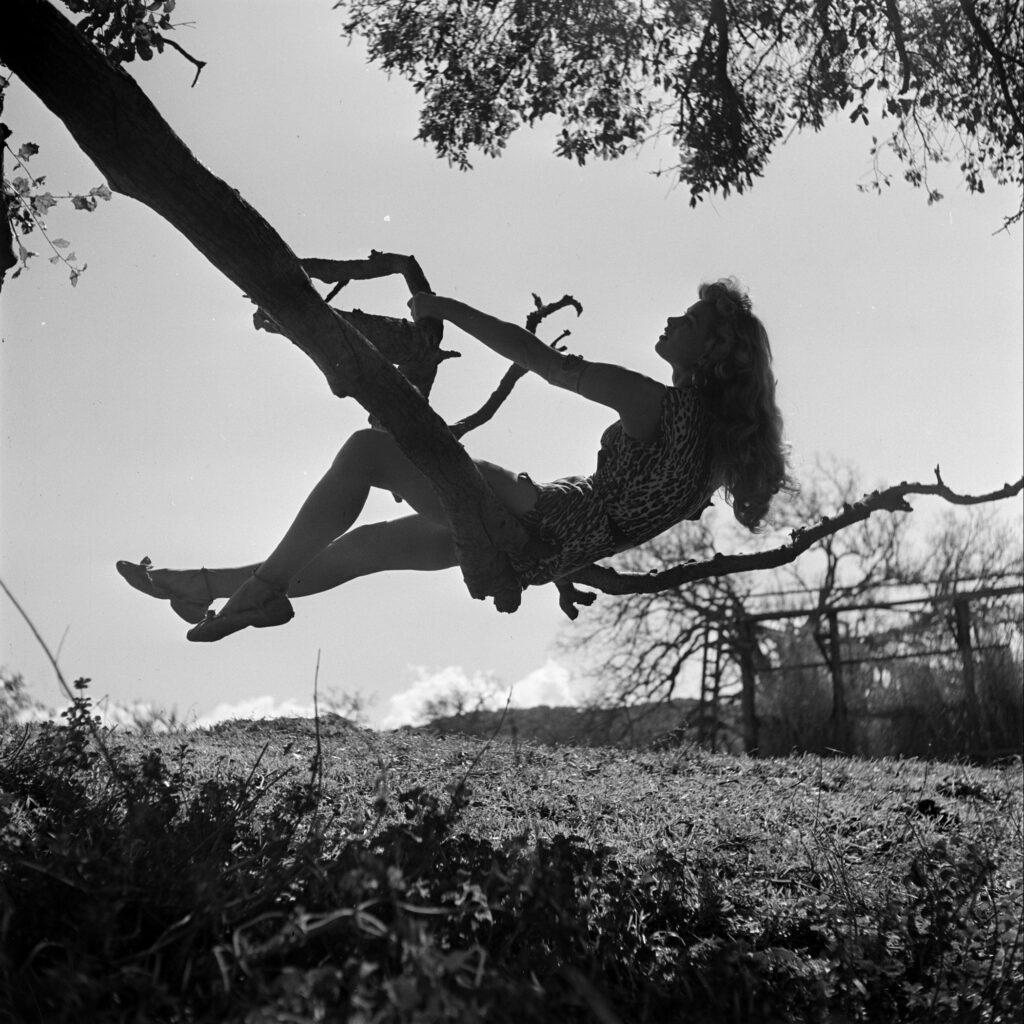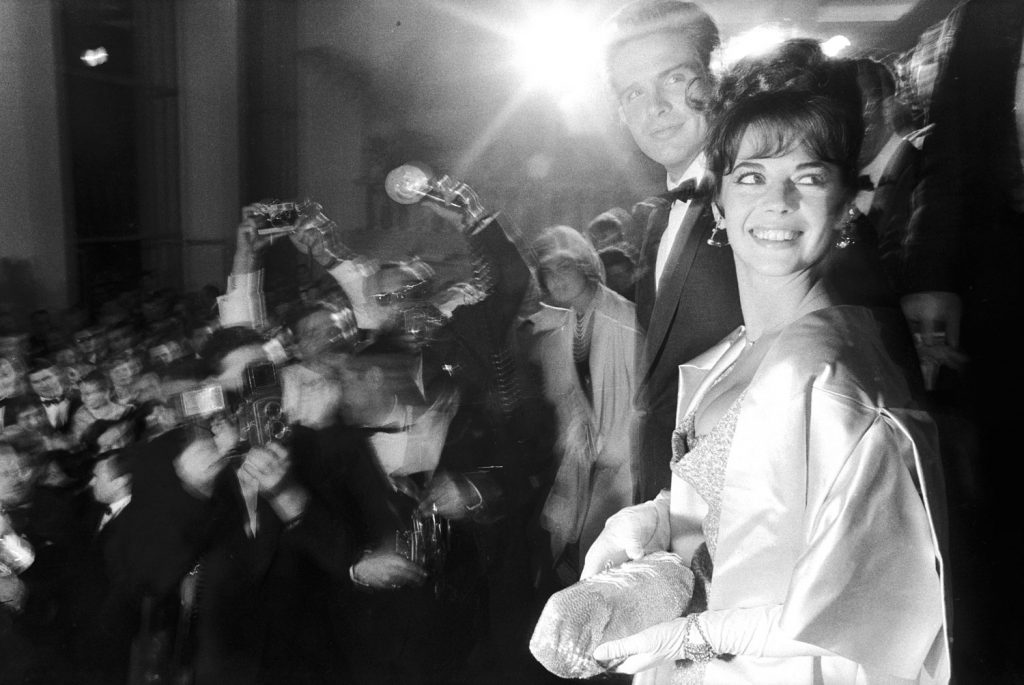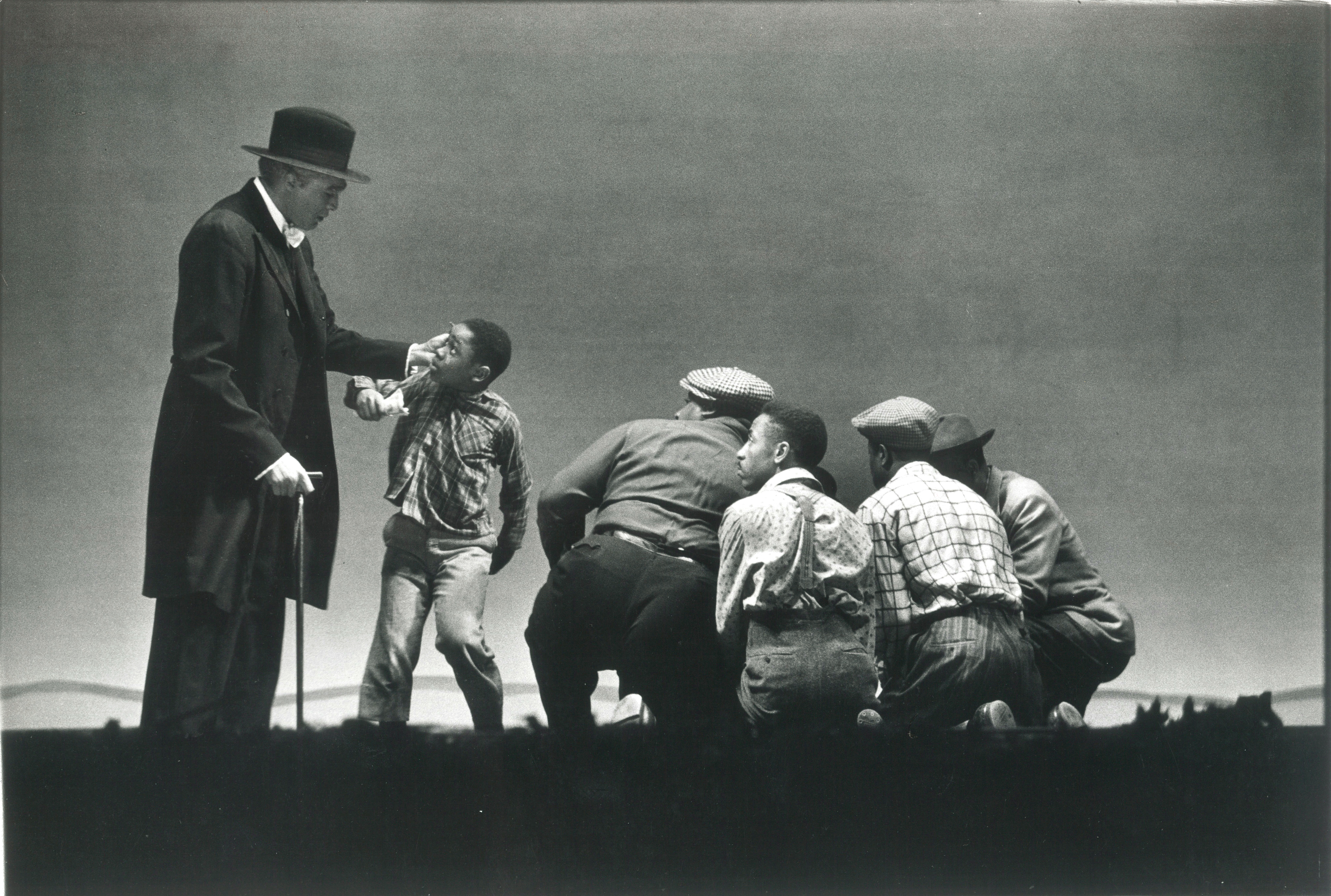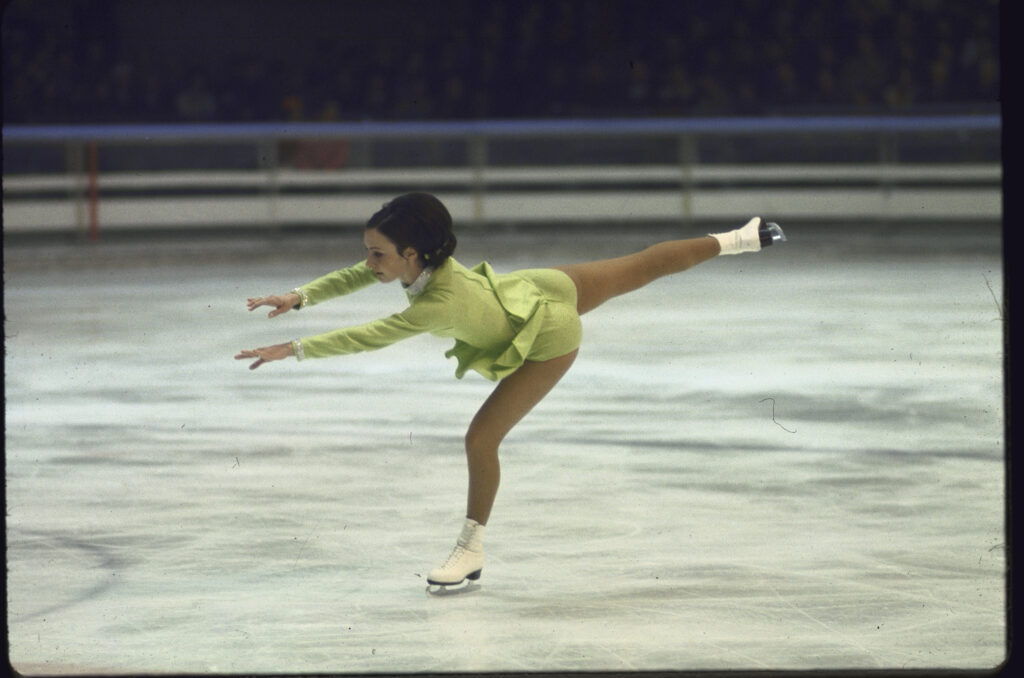Written By: Ben Cosgrove
When LIFE magazine’s Gjon Mili, a technical prodigy and lighting innovator, visited Pablo Picasso in the South of France in 1949, the meeting of these two artists and craftsmen resulted in something extraordinary. Mili showed Picasso some of his photographs of ice skaters with tiny lights affixed to their skates, jumping in the dark, and the Spanish genius’s ever-stirring mind began to race.
“Picasso” LIFE magazine reported at the time, “gave Mili 15 minutes to try one experiment. He was so fascinated by the result that he posed for five sessions, projecting 30 drawings of centaurs, bulls, Greek profiles and his signature. Mili took his photographs in a darkened room, using two cameras, one for side view, another for front view. By leaving the shutters open, he caught the light streaks swirling through space.”
This series of photographs, known ever since as Picasso’s “light drawings,” were made with a small electric light in a darkened room; in effect, the images vanished as soon as they were created and yet they still live, six decades later, in Mili’s playful, hypnotic images. Many of them were also put on display in early 1950 in a show at New York’s Museum of Modern Art.
Finally, while the “Picasso draws a centaur in the air” photo that leads off this gallery is rightly celebrated, many of the images in this gallery are far less well-known in fact, many of them never ran in the magazine. But they are no less thrilling, after all these years, than the famous shot of the 20th century’s archetypal creative genius crafting, on the fly, a simultaneously fleeting and enduring work of art.
A note on the last image in the gallery: An excerpt from a 1968 special issue of LIFE, devoted entirely to Picasso, describes a typical scene at his home: “Putting on a mask is sometimes enough to set Picasso off into a kind of witch-doctor frenzy. He roars and writhes behind his gorilla mask, dances away to the mirror, returns in a rubber devil’s mask to swoop down on his daughter Paloma. Picasso was one of the first European artists to recognize the magic and beauty of African masks, and his own masks show the enduring power of that early influence.”

Pablo Picasso drew a centaur in the air with light, 1949.
Gjon Mili The LIFE Picture Collection/Shutterstock

Pablo Picasso as he created a light drawing, 1949.
Gjon Mili The LIFE Picture Collection/Shutterstock

Pablo Picasso, south of France, 1949.
Gjon Mili The LIFE Picture Collection/Shutterstock
![By setting off a 1/10,000-second strobe light, Mili caught Picasso's intense, agile figure as it flailed away at the drawings. By setting off a 1/10,000-second strobe light, [Mili] caught Picasso's intense, agile figure as it flailed away at the drawings](data:image/svg+xml,%3Csvg%20xmlns='http://www.w3.org/2000/svg'%20viewBox='0%200%200%200'%3E%3C/svg%3E)
By setting off a 1/10,000-second strobe light, Mili caught Picasso’s intense, agile figure as it flailed away at the drawings.
Gjon Mili The LIFE Picture Collection/Shutterstock

Pablo Picasso created a light drawing, 1949.
Gjon Mili The LIFE Picture Collection/Shutterstock

Pablo Picasso created a light drawing, 1949.
Gjon Mili The LIFE Picture Collection/Shutterstock

Pablo Picasso casually carved a figure in space, 1949.
Gjon Mili The LIFE Picture Collection/Shutterstock

Pablo Picasso, in his studio, drew a profile with a pen light, 1949.
Gjon Mili The LIFE Picture Collection/Shutterstock

Pablo Picasso drew a vase of flowers with light, 1949.
Gjon Mili The LIFE Picture Collection/Shutterstock

A Pablo Picasso light drawing, 1949.
Gjon Mili The LIFE Picture Collection/Shutterstock

Pablo Picasso created a light drawing, 1949.
Gjon Mili The LIFE Picture Collection/Shutterstock

Pablo Picasso created a figure with light, 1949.
Gjon Mili The LIFE Picture Collection/Shutterstock

On the beach at Golfe-Juan in 1968, Gjon Mili captured Pablo Picasso reveling in two of his artistic obsessions: the mask and the minotaur, a mythical half-bull, half-man that featured prominently in much of the artist’s work.
Gjon Mili The LIFE Picture Collection/Shutterstock

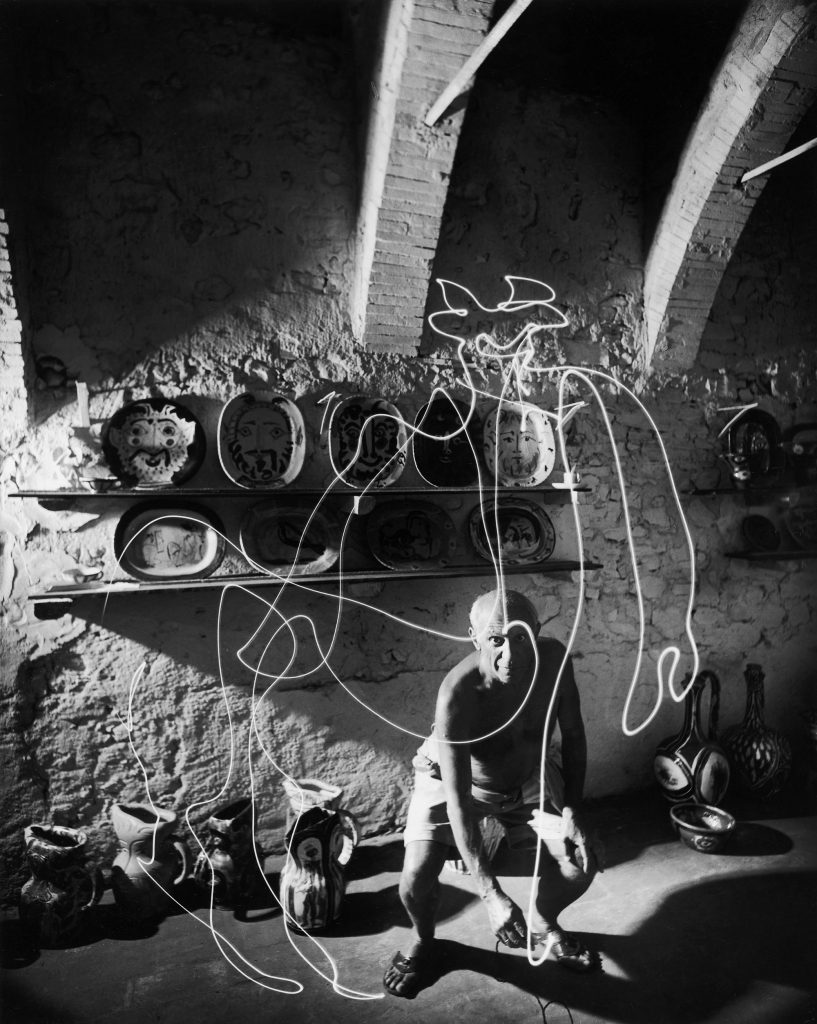


![By setting off a 1/10,000-second strobe light, Mili caught Picasso's intense, agile figure as it flailed away at the drawings. By setting off a 1/10,000-second strobe light, [Mili] caught Picasso's intense, agile figure as it flailed away at the drawings](https://static.life.com/wp-content/uploads/migrated/2012/01/150316-pablo-picasso-04-1024x1011.jpg)









